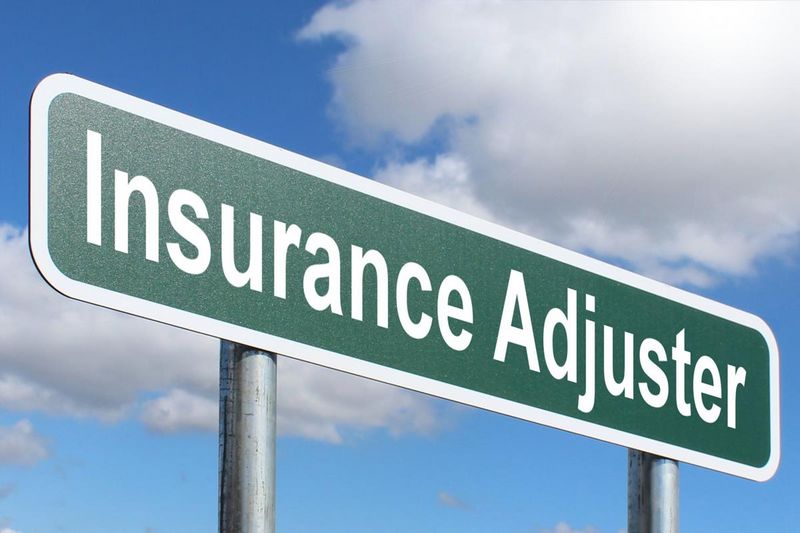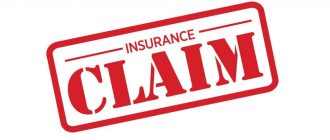
A Day in the Life of a General Insurance Adjuster.
When it comes to insurance claims, there is one integral role that ensures a fair and smooth process: the insurance adjuster. These professionals play a crucial role in assessing and determining the damage and settlement for various claims.
General insurance adjusters have a versatile role that involves handling different types of claims. They may find themselves spending a day inspecting property damage caused by natural disasters or accidents, or evaluating the extent of injuries resulting from personal injury claims.
The work life of a general insurance adjuster revolves around investigating claims and evaluating the extent of the loss or damage. They assess the validity of a claim, gather information from involved parties, and document the damage with supportive evidence.
Each day brings new challenges as adjusters interact with claimants, witnesses, and experts to ensure a fair and accurate assessment. This involves using their knowledge of insurance policies and regulations to determine the appropriate claim amount and make a recommendation for settlement.
The role of a general insurance adjuster demands strong communication skills as they liaise between the insurance company and the claimants. They must be able to communicate effectively, sometimes delivering difficult news or explaining complex processes.
In conclusion, the day in the life of a general insurance adjuster is far from routine. From visiting damaged properties to negotiating settlements, these professionals navigate a dynamic landscape to ensure fair and accurate compensation for claimants.
Role Overview
As a general insurance adjuster, your role is crucial in the claims settlement process. Your day-to-day life involves investigating and assessing damage to determine the validity of insurance claims. You play a versatile role, analyzing policies, reviewing documentation, and negotiating settlements.
When a claim is filed, you are responsible for gathering all necessary information, such as interviews, photographs, and other supporting documents. You then examine the evidence and evaluate the extent of the damage. This investigation helps determine the cause of the loss and verifies coverage under the insurance policy.
Once you have gathered all the relevant information, you analyze the policy terms and conditions to determine the appropriate coverage and claim amount. You use your expertise to assess the validity of the claim and negotiate a fair settlement with the policyholder.
Throughout the process, you must communicate with various parties involved, such as policyholders, witnesses, and other professionals, including lawyers and medical experts. Effective communication is essential to gather accurate information and provide updates regarding the claim status.
In addition to investigating and adjusting claims, you also need to keep up with industry trends and changes in insurance policies to ensure accurate assessments and settlements. This requires continuous learning and professional development.
The role of a general insurance adjuster is dynamic and challenging, as you navigate through complex claims and negotiate settlements. Your attention to detail, analytical skills, and ability to communicate effectively are essential to providing accurate and fair settlements for claimants.
Skills and Qualifications
A successful general insurance adjuster must possess a wide range of skills and qualifications to effectively perform their day-to-day tasks. These professionals play a crucial role in the settlement of insurance claims, which requires a strong understanding of insurance policies and regulations.
Investigation Skills: General insurance adjusters must have excellent investigation skills to assess the extent of damage and determine the cause of the loss. This involves conducting thorough inspections, gathering evidence, and interviewing relevant parties to gather accurate information.
Communication Skills: Effective communication is essential for a general insurance adjuster. They need to be able to clearly explain the claims process to policyholders and negotiate settlements with various parties. Good interpersonal skills are also important for building rapport and resolving conflicts.
Attention to Detail: Being detail-oriented is critical for a general insurance adjuster as they need to carefully review policy documents, assess damages, and calculate the appropriate settlement. Small errors or oversights can result in inaccuracies or disputes.
Analytical Skills: General insurance adjusters must have strong analytical skills to evaluate information, assess liability, and determine the extent of coverage. This involves analyzing complex data and applying insurance principles to make informed decisions.
Time Management: General insurance adjusters often have to handle multiple claims simultaneously, so good time management is essential. They need to prioritize tasks, meet deadlines, and ensure timely communication with all parties involved in the claim process.
Legal Knowledge: A solid understanding of insurance laws and regulations is crucial for a general insurance adjuster. They must be familiar with applicable statutes and case laws to ensure they are handling claims in compliance with the law.
Empathy and Professionalism: Dealing with policyholders who have experienced loss or damages can be emotionally challenging. General insurance adjusters should have empathy and demonstrate professionalism while providing support and guidance throughout the claims process.
Overall, the role of a general insurance adjuster requires a versatile skill set, from investigation and communication to attention to detail and legal knowledge. The ability to effectively handle claims while providing excellent customer service is essential for success in this profession.
A Day in the Life of a General Insurance Adjuster
A general insurance adjuster leads an exciting and challenging life, investigating and evaluating insurance claims in order to determine the extent of damage and negotiate settlements. Every day brings new challenges and opportunities for these professionals to showcase their skills and expertise.
Starting their day, a general insurance adjuster navigates through a range of tasks, from reviewing insurance policies and claim forms to conducting interviews with policyholders and witnesses. They carefully examine the damages, documenting and photographing everything with attention to detail.
In the midst of the day, an adjuster will hold meetings with other members of the claims department, such as appraisers and attorneys, to ensure that all necessary information is gathered and analyzed. This collaboration is crucial in providing fair settlements to policyholders.
Furthermore, an adjuster interacts with insurance agents and brokers, providing them with updates on claims and assisting in the resolution process. Effective communication and negotiation skills are key as they work towards favorable settlements for both parties involved.
At the heart of their day, an adjuster plays a vital role in investigating and validating claims. They assess the extent of damage, analyzing police reports and medical records, consulting with experts, and utilizing their knowledge of insurance policies and industry regulations.
The day of an insurance adjuster ends with the preparation of comprehensive reports, outlining all findings and recommendations. These reports are an essential part of the process, ensuring that policyholders receive fair compensations and the insurance company operates within legal frameworks.
The life of a general insurance adjuster is dynamic, filled with challenges, and demands a strong sense of responsibility. Their expertise in assessing damages, negotiating settlements, and providing accurate evaluations is crucial in ensuring the smooth functioning of the insurance industry, bringing peace of mind to policyholders.
Investigation
One of the key responsibilities of a general insurance adjuster is to investigate claims. Each day in the life of an adjuster is filled with various investigations, as they determine the validity and coverage of each claim.
When an insurance claim is filed, it is the duty of the adjuster to thoroughly investigate the details surrounding the incident. They carefully gather all relevant information, such as police reports, witness statements, and any photos or videos related to the claim. This meticulous investigation helps the adjuster to assess the accuracy of the claim and determine the appropriate settlement.
The work of an insurance adjuster is not limited to desk research. They often find themselves in the field, visiting accident sites and interviewing involved parties. This hands-on approach allows them to gain a deeper understanding of the circumstances surrounding each claim.
During the investigation process, the adjuster must remain unbiased and objective. They analyze the evidence and compare it with the policy terms to determine the coverage and liability. This attention to detail is crucial in ensuring a fair and accurate settlement for all parties involved.
As an insurance adjuster, every day brings new and unique cases to investigate. They have the opportunity to be a part of people’s lives during challenging times and use their expertise to help resolve insurance claims. The investigative role of a general insurance adjuster is an essential part of providing excellent customer service and maintaining the trust and integrity of the insurance industry.
Documentation
In the life of a general insurance adjuster, documentation plays a crucial role in the settlement of claims. Each day, an adjuster deals with various types of damage and losses that require detailed documentation to accurately assess the extent of the loss and determine the appropriate coverage.
Documentation begins from the moment an adjuster receives a claim. They carefully gather all the necessary information, such as incident reports, statements from witnesses, and evidence provided by the insured. This documentation helps the adjuster understand the circumstances surrounding the claim and evaluate the validity of the claim.
Once the initial documentation is collected, the adjuster meticulously examines the policy terms and conditions to determine the coverage applicable to the specific claim. They compare the damage or loss listed in the documentation with the policy coverage to ensure a fair settlement.
In the case of property damage claims, the adjuster assesses the damage by documenting the extent of the loss through photographs, videos, and written reports. This detailed documentation serves as evidence to support the claim and facilitate the settlement process.
Additionally, documentation is crucial when assessing liability. If there is a dispute regarding liability for the claim, the adjuster relies on thorough documentation to present their findings and support their conclusions.
Throughout the entire claim settlement process, the adjuster maintains accurate and organized documentation. This documentation serves as a record of the claim and provides a reference for any future inquiries or audits.
Overall, documentation is an integral part of a general insurance adjuster’s everyday life. It ensures transparency, fairness, and efficiency in the settlement of claims, allowing the insured to receive the coverage they deserve for their losses.
Communication
Effective communication is a vital aspect of a general insurance adjuster’s day-to-day activities. Whether it’s speaking with policyholders, claimants, witnesses, or colleagues, the adjuster must have strong communication skills to ensure a smooth claims process.
When interacting with the insured individual, the adjuster must listen attentively to understand the details of the claim. This includes accurately documenting the nature of the damage, gathering information about the incident, and assessing the scope of the loss. It is crucial for the adjuster to ask relevant questions to gather all necessary facts and to establish a clear understanding of the situation.
Moreover, effective communication extends beyond verbal interactions. Adjusters often have to communicate in writing, whether it’s drafting reports, sending emails, or preparing settlement offers. These written communications must be clear, concise, and professional, ensuring that all relevant information is accurately conveyed and documented. Attention to detail is key in order to avoid misunderstandings or discrepancies that could impact the claims process.
In addition to communicating with the insured individuals, adjusters also liaise with various stakeholders throughout the claims process. This may involve speaking with witnesses to gather additional information, consulting with experts, or negotiating with third parties to reach a fair and equitable settlement. In these situations, the adjuster must effectively convey their findings, recommendations, and rationale to ensure all parties are on the same page.
Overall, communication skills are essential for a general insurance adjuster to successfully investigate and settle claims. Whether it’s verbal or written, clear and effective communication enables the adjuster to gather accurate information, build trust with stakeholders, and ultimately achieve fair and satisfactory settlements for policyholders.
Exploring the Versatile Role
As a general insurance adjuster, every day brings new challenges and opportunities to make a difference in people’s lives. In this versatile role, you are responsible for investigating claims and assessing damage to ensure fair and accurate settlements.
Life as an insurance adjuster is anything but mundane. Each day presents a unique set of circumstances and situations that require your expertise and attention to detail. Whether it’s evaluating a car accident claim, assessing property damage from a storm, or investigating a liability claim, no two days are ever the same.
As you go about your day, your main goal is to make sure that policyholders receive the settlements they deserve. This involves conducting thorough investigations, gathering evidence, and analyzing data to determine the extent of the damage and the appropriate compensation.

Being successful in this role requires a wide range of skills and qualities. You must have excellent communication skills to interact with policyholders, witnesses, and other professionals involved in the claim process. Attention to detail is crucial, as even the smallest piece of evidence can make a significant difference in the outcome of a claim.
Furthermore, a strong sense of empathy and compassion is essential to understand the impact of the damage on the policyholder’s life. Insurance adjusters often deal with individuals who have experienced a traumatic event, and it is their responsibility to provide guidance and support throughout the settlement process.
Overall, a day in the life of a general insurance adjuster is filled with excitement and challenges. It is a versatile role that requires you to investigate, assess, and negotiate settlements to ensure that policyholders receive the support they need during difficult times. If you enjoy a dynamic work environment and helping people in their time of need, this might be the perfect career path for you.
Assessing Damages
One of the most important tasks of a general insurance adjuster’s day is to investigate and assess the damages in a claim. This crucial step in the insurance process helps the adjuster determine the extent of the damage and the necessary actions to be taken.
When assessing damages, the general insurance adjuster carefully inspects the property or vehicle in question. They look for any visible signs of damage, such as structural issues, dents, or scratches. The adjuster may also take measurements and photographs to document the extent of the damage.
In addition to visual inspections, the adjuster gathers information from various sources to assess the damages accurately. This may include reviewing police reports, interviewing witnesses, and consulting with experts or technicians in specific fields.
Once all the necessary information has been collected, the general insurance adjuster evaluates the damages and determines the appropriate compensation for the claim. This involves comparing the damage to the policy coverage, considering any deductibles or exclusions, and calculating the fair market value or repair costs.
Assessing damages requires a keen eye for detail and a thorough understanding of insurance policies and regulations. The general insurance adjuster must also have strong communication skills to explain their findings to the policyholders and negotiate settlements when needed.
Overall, the process of assessing damages is a fundamental part of a general insurance adjuster’s day. By carefully investigating and evaluating the damages, the adjuster plays a vital role in ensuring fair and accurate compensation for the policyholders.
Negotiating Claims
As a general insurance adjuster, negotiating claims is a vital part of my day-to-day life. When a client files a claim for damage covered under their insurance policy, it is my responsibility to assess the situation, evaluate the extent of the damage, and determine the appropriate settlement.
During the negotiation process, I work closely with the claimant to gather all the necessary information, including photographs, reports, and estimates. This helps me build a solid case to present to the insurance company. It is important to establish clear and effective communication with both the claimant and the insurance company to ensure a fair and efficient resolution.
One of the key skills in negotiating claims is the ability to find common ground between the claimant and the insurance company. I am well-versed in insurance policies and the claims process, allowing me to effectively advocate for my clients while also considering the insurance company’s perspective. By presenting a strong case and providing supporting evidence, I can negotiate a settlement that meets both parties’ needs.
Throughout the negotiation process, I also make sure to stay updated on industry trends and regulations. This knowledge allows me to navigate any potential challenges and ensure that the settlement I negotiate is within the guidelines set by the insurance industry.
This aspect of my role as a general insurance adjuster requires a combination of analytical thinking, interpersonal skills, and knowledge of the insurance industry. It is a challenging but fulfilling part of my day, as I am able to use my expertise to help clients receive the compensation they deserve.
In conclusion, negotiating claims is an integral part of a general insurance adjuster’s day. It requires a combination of technical expertise, effective communication, and a thorough understanding of insurance policies. By advocating for my clients and effectively presenting their case, I can negotiate fair settlements that provide them with the necessary compensation for damages covered by their insurance policy.
Working with Clients and Insurers
As a general insurance adjuster, a significant part of your job is working closely with clients and insurers to investigate and process insurance claims. You are the key point of contact between those who have suffered damage or loss and their insurance company.
When a claim is filed, you will meet with the client to assess the damage and gather necessary information. This may involve conducting interviews, taking photographs, and examining relevant documents. Your role is to accurately determine the extent of the damage and evaluate the validity of the claim based on policy coverage.
Once the investigation is complete, you will negotiate with the insurer on behalf of your client. This involves presenting evidence, supporting documentation, and your professional expertise to advocate for a fair settlement. You will work closely with the insurer’s claims representative to reach an agreement that adequately compensates the client for their loss.
Throughout the entire process, effective communication skills are essential. You must be able to explain complex insurance terms and procedures to clients in a clear and concise manner, ensuring they understand their rights and options. Additionally, you will need to communicate with insurers in a professional and persuasive manner to advocate for your clients’ best interests.
Working with clients and insurers requires a combination of technical knowledge, empathy, and negotiation skills. It is your responsibility to manage client expectations, provide regular updates on the progress of their claim, and ensure a smooth and efficient claims process.
Ultimately, the goal is to provide excellent customer service while upholding the principles of the insurance policy. By diligently investigating claims and working closely with both clients and insurers, you play a vital role in helping individuals and businesses recover from unexpected events and receive the compensation they deserve.
Policy Evaluation
Policy evaluation is a crucial step in the day-to-day life of a general insurance adjuster, as it involves assessing the insurance coverage and terms applicable to a claim. A skilled adjuster must thoroughly examine the policy to determine the extent of coverage for the claimed damages.
During the investigation process, the general insurance adjuster carefully reviews the insurance policy to identify the specific coverage limits, deductibles, and exclusions that may impact the claim settlement. This evaluation helps in determining the insurance company’s liability and the potential compensation amount for the policyholder.
The adjuster evaluates the policy language, terms, and conditions to verify the insured property, the type of damage or loss claimed, and any relevant timelines or limitations stated in the policy. By analyzing these factors, the adjuster ensures that the claim is within the scope of coverage and adheres to the policy guidelines.
This process requires attention to detail and the ability to interpret complex insurance language. The adjuster must possess strong analytical skills to evaluate the policy’s language and compare it against the claimed damages. Additionally, they should have excellent communication skills to discuss the findings and possible outcomes with the policyholder.
Policy evaluation is an essential component of a general insurance adjuster’s role, as it directly impacts the investigation and settlement process. By performing a thorough evaluation, the adjuster ensures that the policyholder’s claim is handled fairly and in accordance with the terms of their insurance policy.
Providing Guidance
As an adjuster, a day in the life can be filled with a variety of tasks. One important aspect of the role is providing guidance to policyholders during the claim process.
When a policyholder experiences damage or loss, it can be a stressful and overwhelming time. As an insurance adjuster, it is your responsibility to investigate the claim and assess the extent of the damage. This requires attention to detail and strong problem-solving skills.
Once you have gathered all the necessary information, you will need to communicate with the policyholder and explain the next steps in the process. This is where your guidance and expertise come into play. You will provide clear and concise explanations, helping the policyholder understand the insurance coverage and the settlement process.
Throughout the process, you will serve as a point of contact for the policyholder, answering any questions they may have and providing support along the way. This can involve coordinating with other professionals, such as contractors or medical experts, to ensure a smooth and timely resolution.
Providing guidance as an insurance adjuster is not just about technical knowledge and expertise. It also requires empathy and understanding, as you may be assisting policyholders in difficult and emotional situations. Your ability to listen, empathize, and offer guidance will help ease their concerns and ensure a positive customer experience.
Overall, being an insurance adjuster is a challenging yet rewarding role. You have the opportunity to make a real difference in people’s lives during times of crisis. By providing guidance and support, you help policyholders navigate the claims process and achieve a fair settlement for their losses.
Claim Resolution
As a general insurance adjuster, a significant part of my day involves claim resolution. When an insurance claim is filed, it is my responsibility to investigate and gather all the necessary information to determine the validity and extent of the claim.
Upon receiving a claim, I first review the policy to understand the coverage provided and any applicable deductibles or exclusions. I then contact the policyholder to gather additional details and schedule a time for an on-site inspection.
During the inspection, I carefully assess the damage or loss and document all relevant information, including photographs and detailed notes. This helps me in the claim resolution process, as it allows me to accurately determine the extent of the damage and the estimated cost of repairs or replacement.
Once I have completed the investigation and gathered all the necessary information, I begin the claim resolution process. This involves evaluating the evidence, analyzing the policy coverage, and determining the appropriate settlement amount.
During the claim resolution process, I may need to consult with other professionals, such as contractors or engineers, to get their expert opinion on the extent of the damage and the cost of repairs. This ensures that the settlement amount is fair and accurate.
When determining the settlement amount, I also take into consideration any applicable deductibles, depreciation, or limits outlined in the insurance policy. I strive to provide a fair and efficient resolution to each claim, taking into account all relevant factors.
Ultimately, my goal as a general insurance adjuster is to facilitate the claim resolution process and ensure that policyholders receive the compensation they are entitled to under their insurance policy. By investigating claims and providing fair settlements, I help to restore their peace of mind and enable them to move forward with their lives.
undefined
What is the role of a general insurance adjuster?
A general insurance adjuster is responsible for investigating insurance claims and determining the extent of the insurance company’s liability. They assess damages, interview witnesses, gather evidence, and negotiate settlements with policyholders.
What qualifications are required to become a general insurance adjuster?
The qualifications to become a general insurance adjuster vary by state, but typically include a high school diploma or equivalent. Some states may also require additional licensing or certification. Strong communication and analytical skills are also important for this role.
What types of claims does a general insurance adjuster handle?
A general insurance adjuster can handle a wide range of claims, including property damage, auto accidents, personal injury, and liability claims. They may also specialize in specific areas, such as workers’ compensation or marine insurance.
What is a typical day like for a general insurance adjuster?
A typical day for a general insurance adjuster involves a combination of office work and fieldwork. They may start their day by reviewing new claims and conducting phone interviews with policyholders. They then visit the site of the claim to assess damages, take photographs, and gather evidence. In the office, they analyze the collected information and negotiate settlements with the policyholders.
Is a career as a general insurance adjuster financially rewarding?
A career as a general insurance adjuster can be financially rewarding. The salary of a general insurance adjuster can vary depending on factors such as experience, location, and company size. Additionally, many insurance adjusters have the opportunity to earn bonuses or commissions based on their performance.






